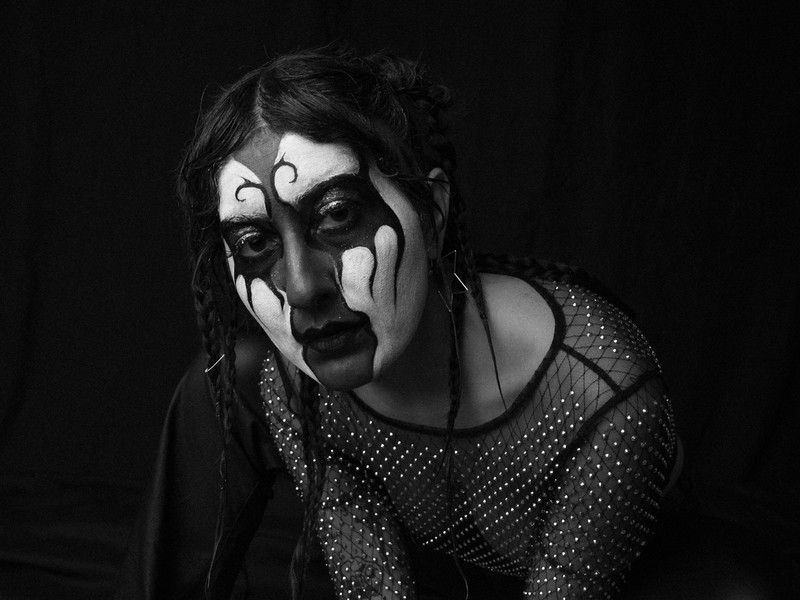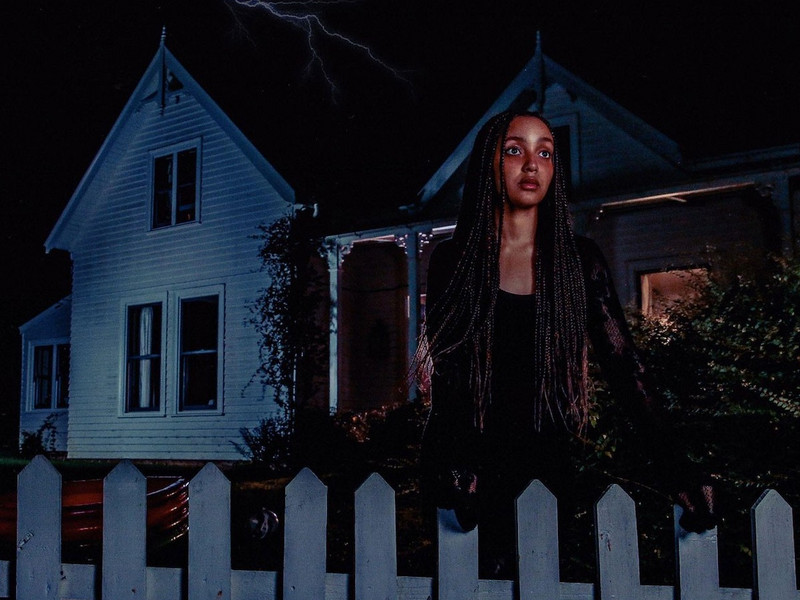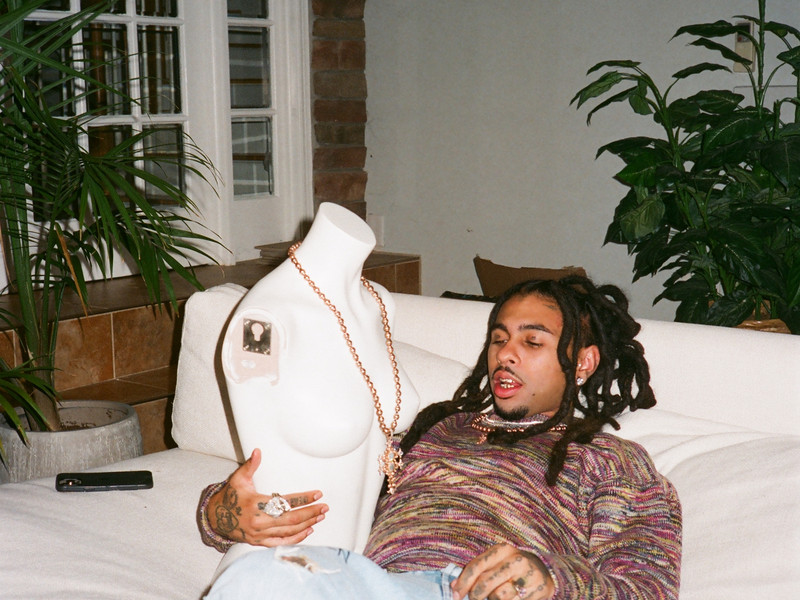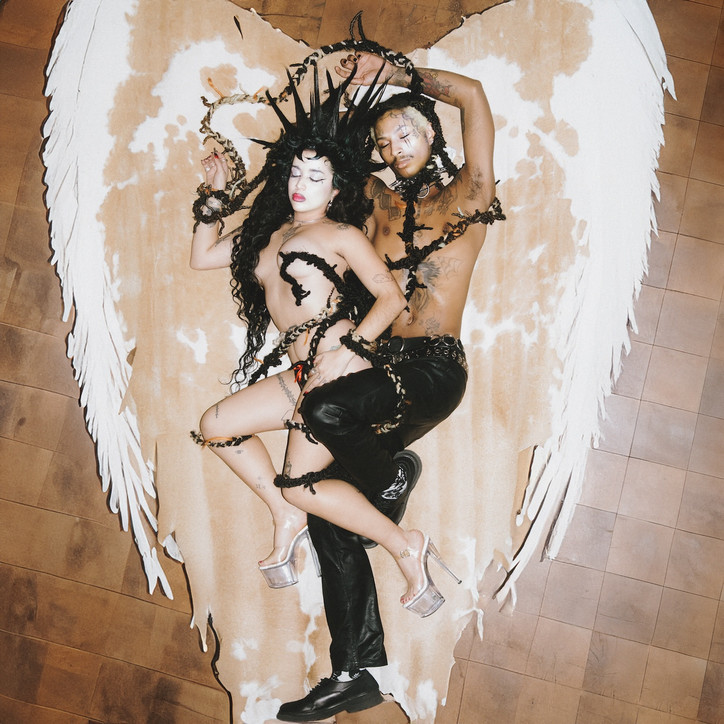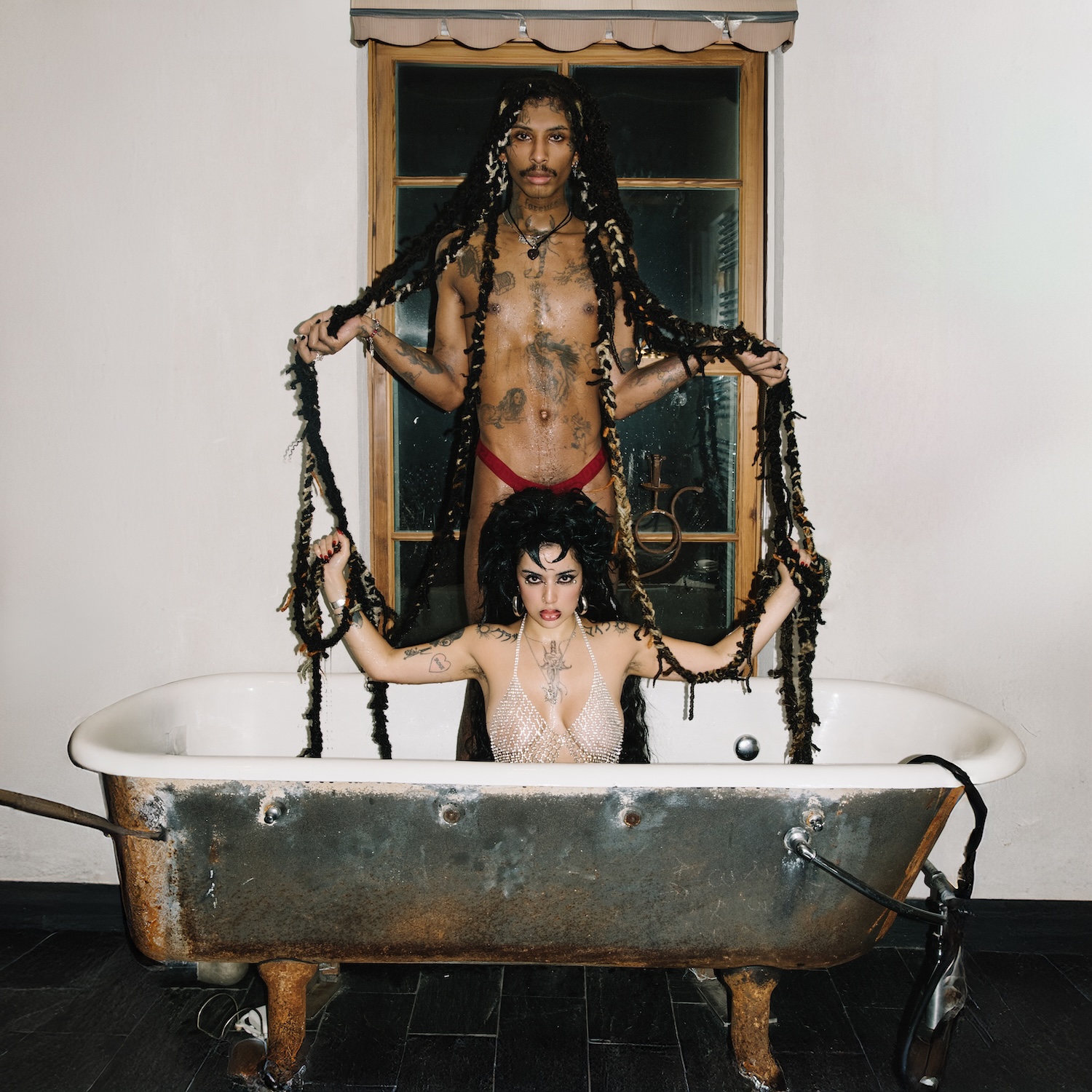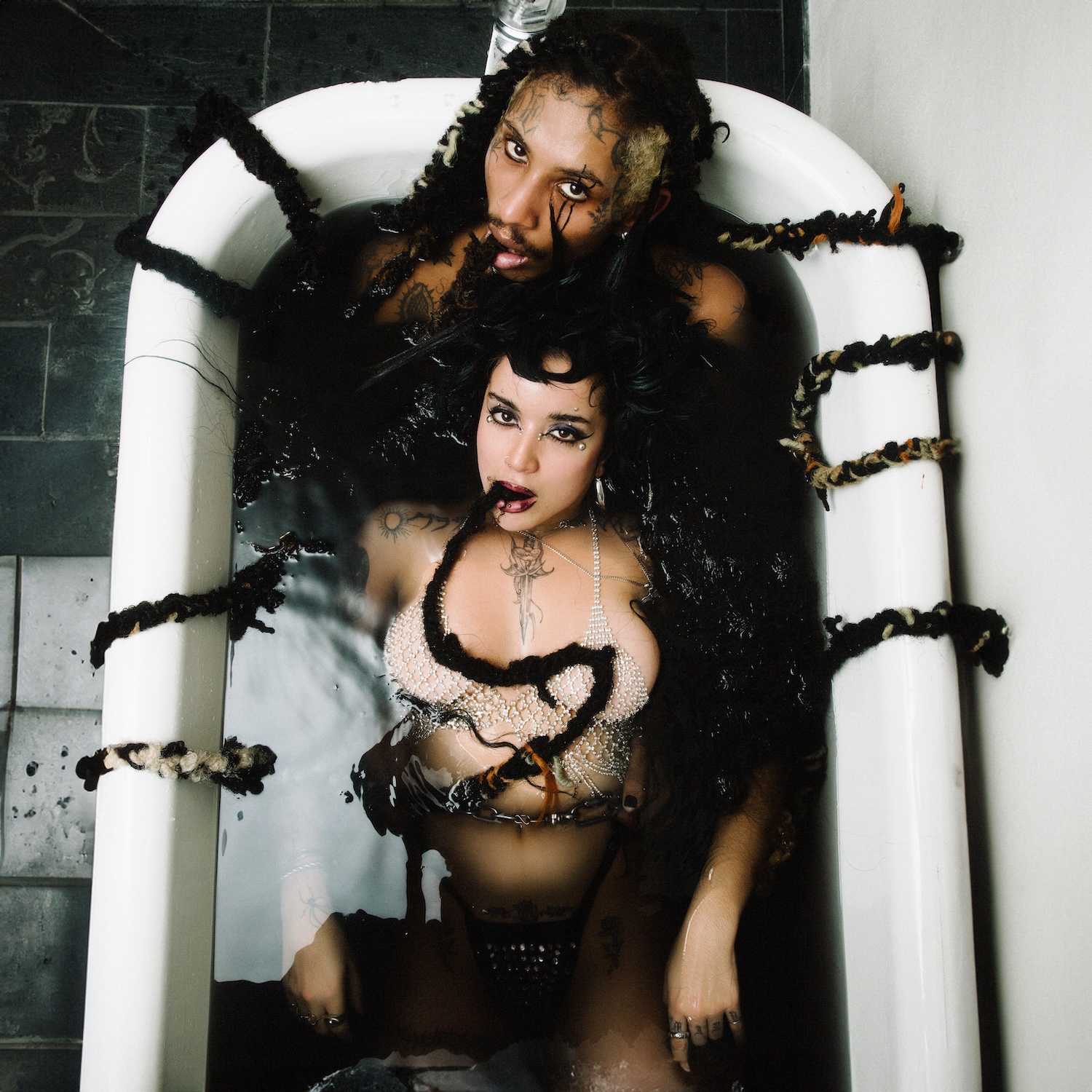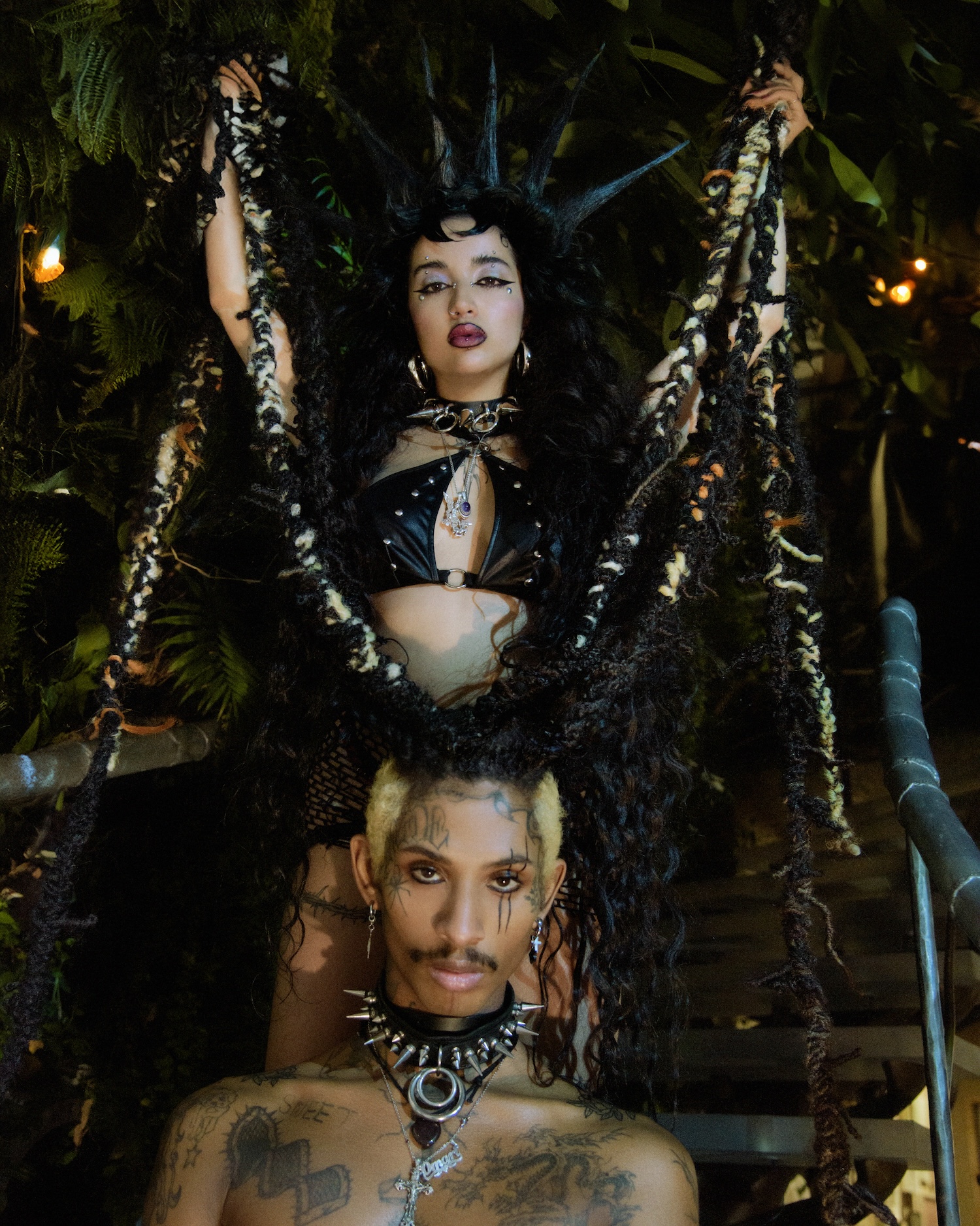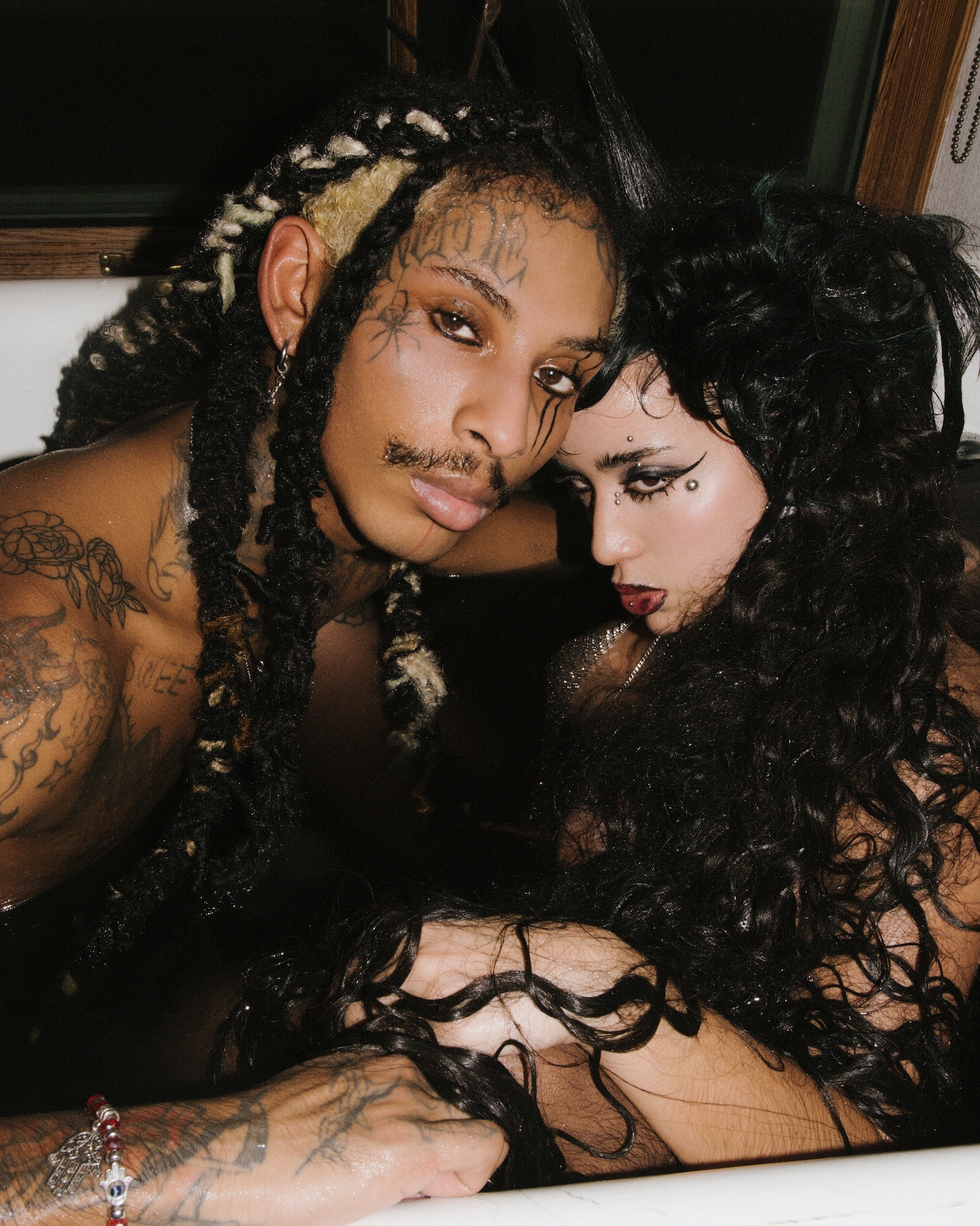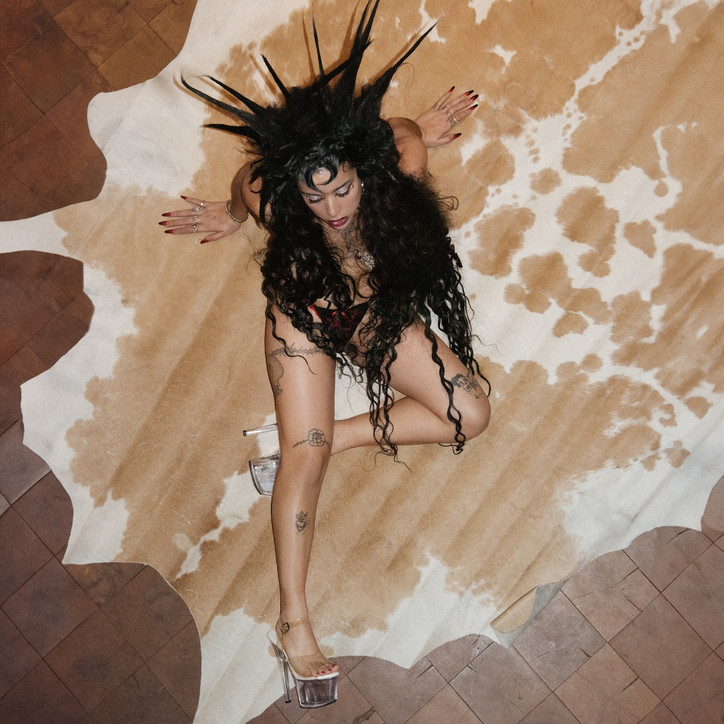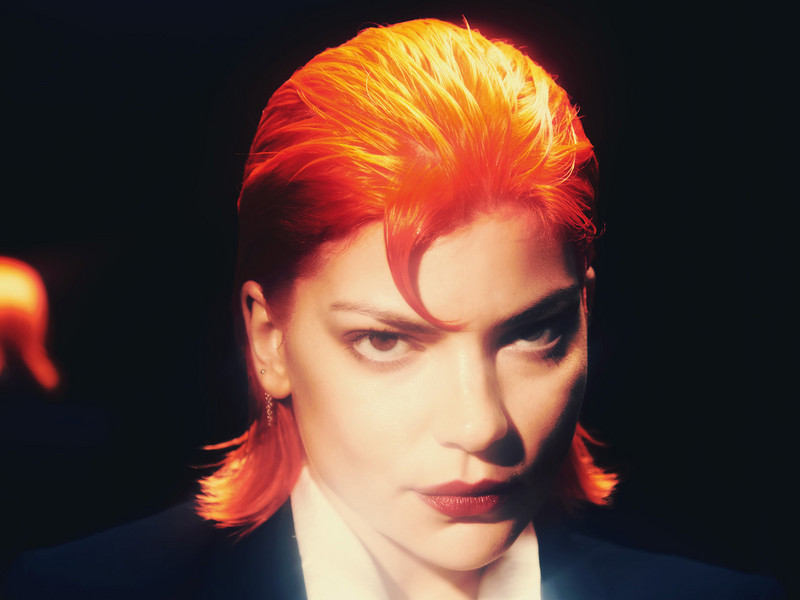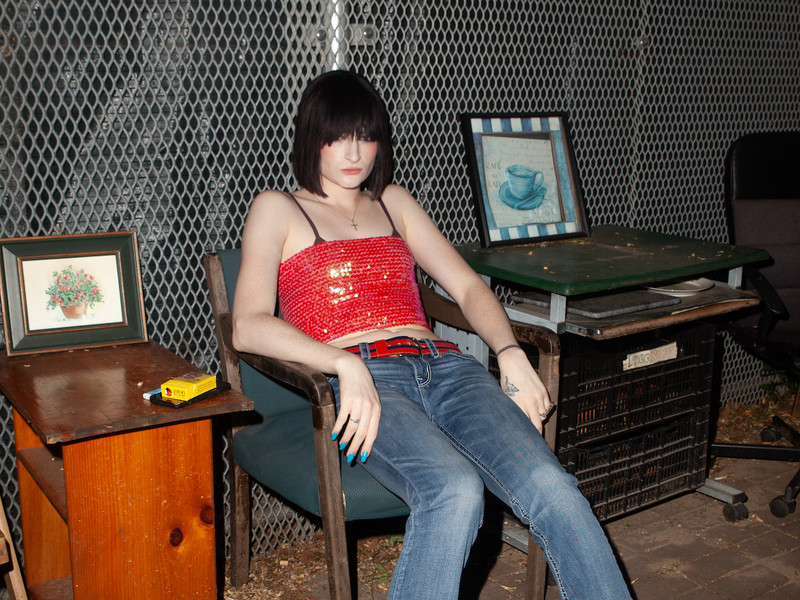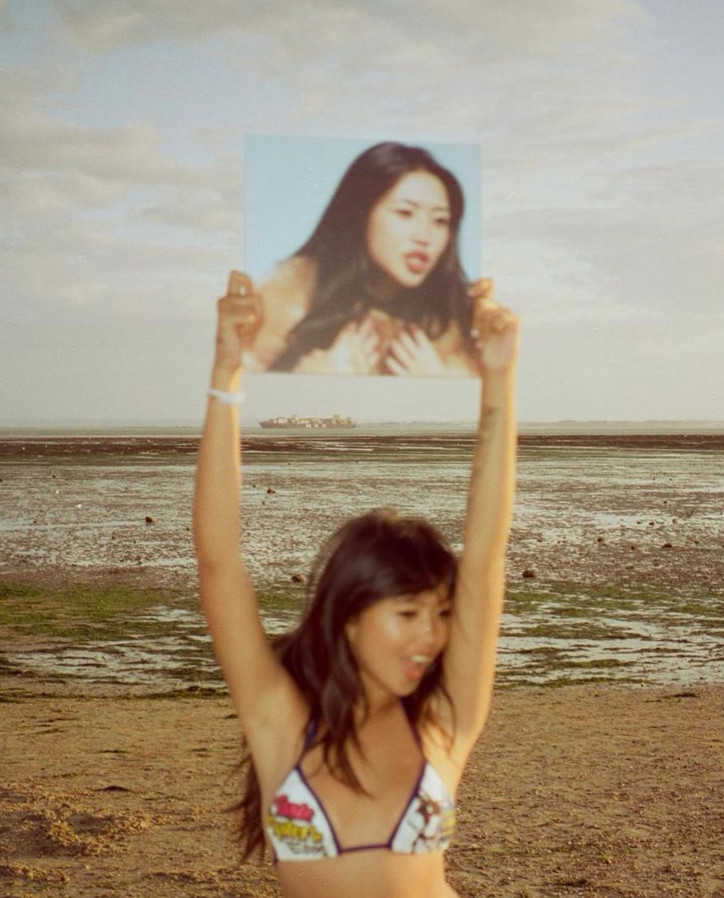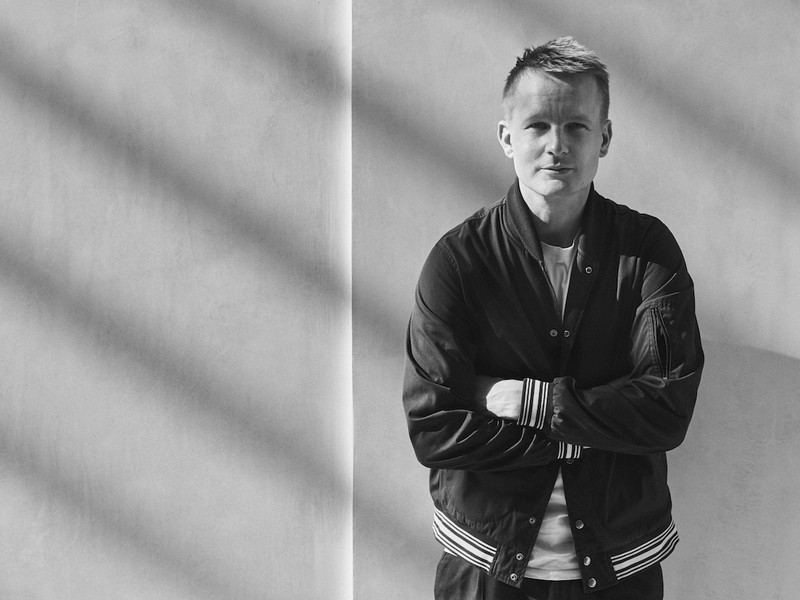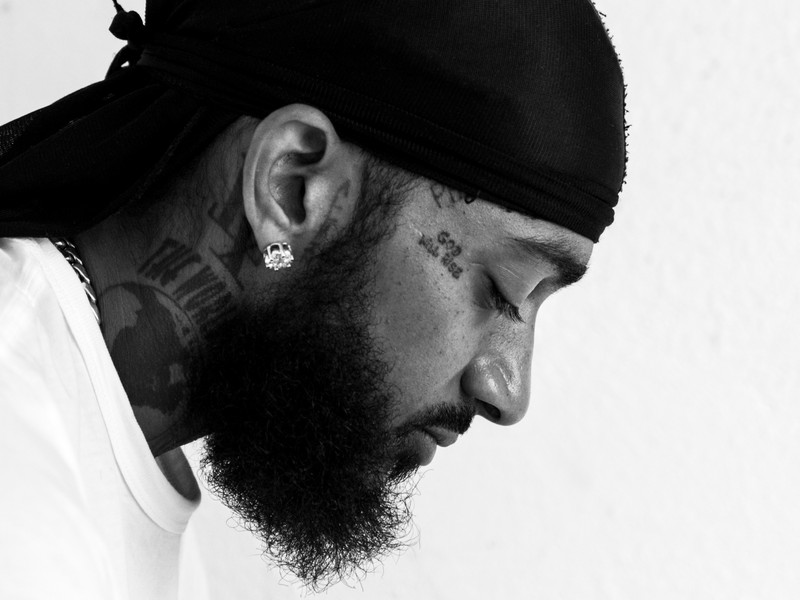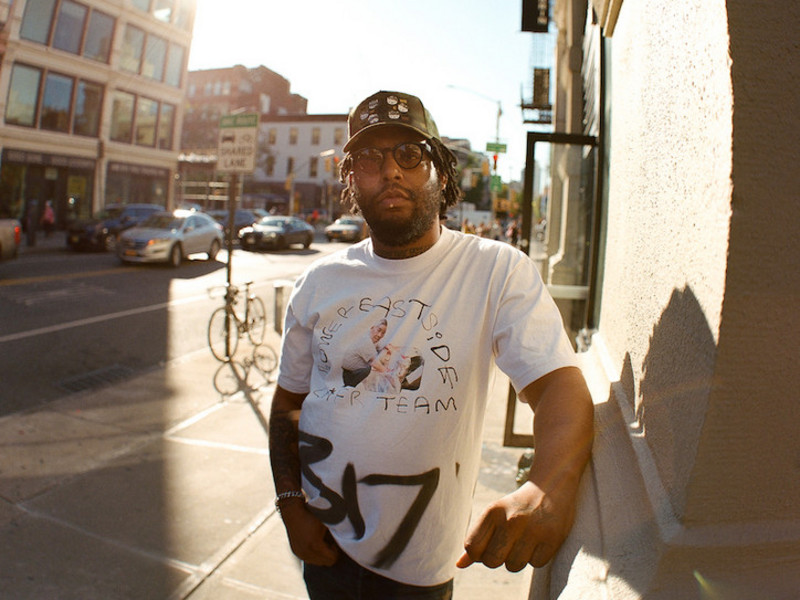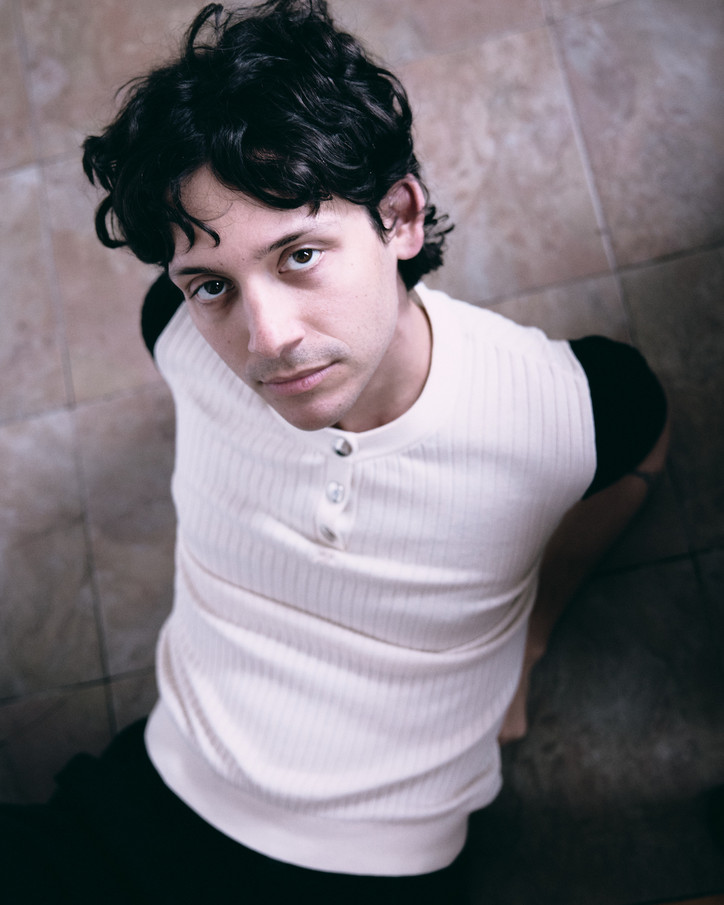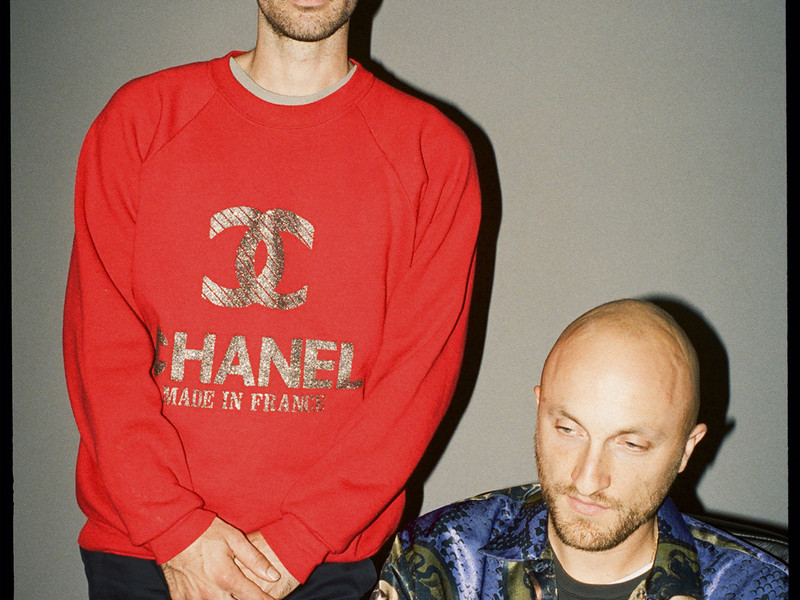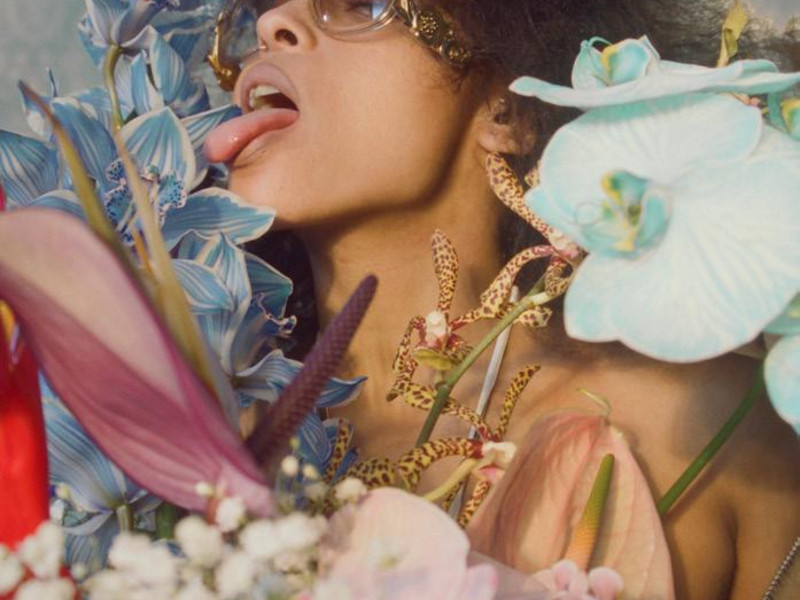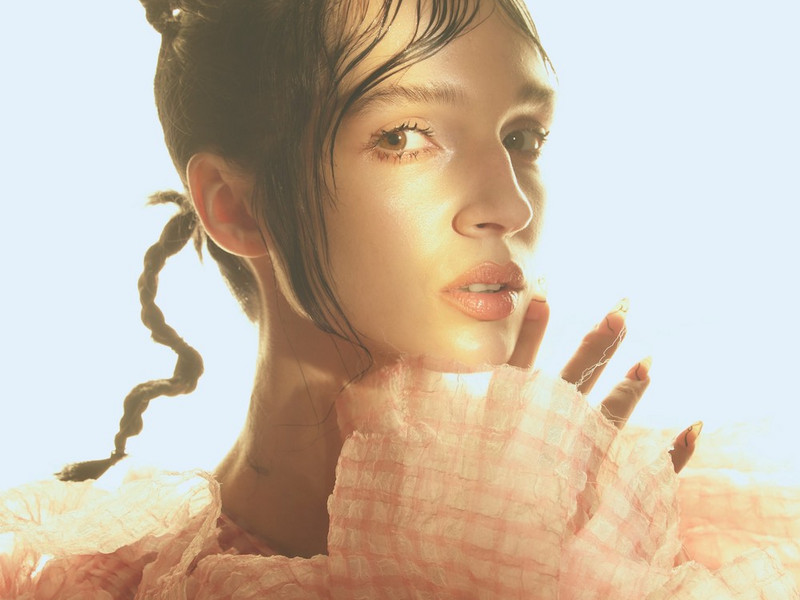The name Opium Angel sounds euphoric, yet mortal — a paradox that seems to capture your sound perfectly. How did you come up with it?
Omari Love— The first two letters of “Opium” are like “OP” for Omari and Pauli, but opium is also a drug that makes people feel really good. Euphoria is a good word, as you said, but it also destroys — that’s the mortal aspect I felt from it.
Pauli Cakes— And in a way it's like dying and coming back to life through ecstasy. Opium makes you feel euphoric, but if you do too much, you die. Then, you reincarnate into the world as an angel. The music isn’t dark, but it talks a lot about existence, deconstructing it, eating the body, bleeding, and then coming back — like the line going flat on a heart monitor. It definitely deals with mortality.
Pauli, as a New York native, how has your upbringing inspired your artistic approach? And Omari, coming from Minnesota, how has your background shaped your music, and what has been the impact of moving to New York?
PC— Growing up in New York, I’ve always been surrounded by different sounds. Music has always been my form of escapism in an overstimulating society. I have a very maximalist approach to sound because, in New York, there's always a million things happening at once. Growing up in the Bronx, I was constantly exposed to diverse music, like dancehall and futuristic Caribbean sounds. These sound bites have always been in my head.
OL— Growing up in Minnesota, there was always this battle between West Coast and East Coast music, but being in the Midwest, I was exposed to both. My dad loved West Coast music, so I grew up listening to a lot of that. For a long time, I didn’t listen to any East Coast rappers because I thought West Coast was the best. Knowing Prince was from Minnesota was also a huge influence — it was so unique, like nothing anyone had heard before, and I wanted that in my music. As I got older, I realized that every place has its own sound, and when I started creating music, I became a sponge to all of it. Moving to New York exposed me to things I didn’t even know existed, like noise music. Seeing artists like Deli Girls and Machine Girl was mind-boggling to me — it was so unconventional and inspiring.

